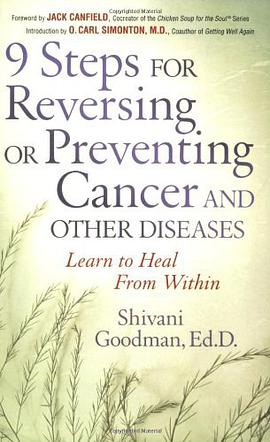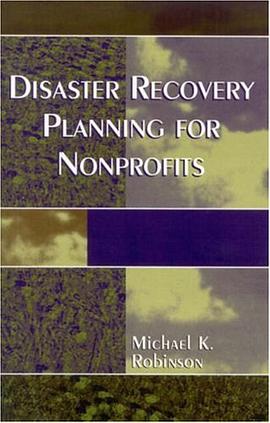

具体描述
In recent years much has happened to justify an examination of biological research in light of national security concerns. The destructive application of biotechnology research includes activities such as spreading common pathogens or transforming them into even more lethal forms. Policymakers and the scientific community at large must put forth a vigorous and immediate response to this challenge. This new book by the National Research Council recommends that the government expand existing regulations and rely on self-governance by scientists rather than adopt intrusive new policies. One key recommendation of the report is that the government should not attempt to regulate scientific publishing but should trust scientists and journals to screen their papers for security risks, a task some journals have already taken up. With biological information and tools widely distributed, regulating only U.S. researchers would have little effect. A new International Forum on Biosecurity should encourage the adoption of similar measures around the world. Seven types of risky studies would require approval by the Institutional Biosafety Committees that already oversee recombinant DNA research at some 400 U.S. institutions. These "experiments of concern" include making an infectious agent more lethal and rendering vaccines powerless.
作者简介
目录信息
读后感
评分
评分
评分
评分
用户评价
这本书给我的最大感受是“视野的拓宽”。在此之前,我对生物技术多停留在健康和环境改善的层面,但这本书彻底颠覆了我的认知框架。作者将生物学前沿与国际安全、信息战、供应链弹性等宏大叙事巧妙地编织在一起,构建了一个全新的分析场域。我尤其对其中关于“生物恐怖主义的民主化”的讨论印象深刻,它不再是好莱坞电影中那种遥不可及的场景,而是被解析为一种基于开源代码和廉价试剂的现实威胁。这种现实感是极其震撼的。文字的组织结构非常清晰,脉络分明,仿佛引导读者沿着一条精心设计的路径,从基础科学原理一步步走向复杂的政策制定困境。对于政策制定者或希望深入理解现代安全环境的专业人士来说,这本书无疑是一份不可或缺的案头读物,它提供了足够的材料去挑战现有的安全范式。
评分这本书的价值在于它成功地将“科学发现”和“社会责任”这两个看似疏离的概念紧密地焊接在了一起。它没有提供简单的答案,而是提出了一系列极其复杂且相互矛盾的问题。比如,如何在鼓励创新速度的同时,建立有效的“护栏”?作者通过大量的跨学科引用,从法学、社会学到计算机科学,构建了一个多维度的分析框架,展现了当代生物技术研究的复杂生态位。我最欣赏的是它对全球合作可能性的探讨——在技术全球化的今天,任何单一国家的监管努力都是徒劳的,这种强调多边治理的观点,在当前碎片化的国际关系中显得尤为重要和迫切。对于那些希望超越技术本身,探究技术如何重塑权力结构和人类行为模式的读者来说,这本书绝对是一部里程碑式的作品,它迫使你以一种全新的、更具批判性的眼光去看待我们手中的“生命工具”。
评分我必须承认,这本书的学术性非常强,但其叙事的魅力足以吸引我读完最后一页。作者对于历史背景的追溯,尤其是将当前的生物技术发展置于冷战后科技竞争的大背景下进行审视,提供了极佳的纵深感。书中的论证非常强调“系统性风险”,它不仅仅关注单一的技术突破,更着眼于这些突破相互作用时产生的非线性后果。比如,他对生物信息学平台的可访问性与国家安全机构的监控能力之间的张力分析得入木三分。阅读过程中,我感觉自己像是在参与一场高层次的战略研讨会,充满了对未来不确定性的辩论和推演。语言风格上,它保持了一种恰到好处的距离感,既不失专业深度,又避免了过度学术化的冷漠,成功地将一个高度专业化的领域,转化成了一场关乎全人类福祉的严肃对话。
评分这部作品的探讨深度和广度令人惊叹,它不仅仅是对新兴生物技术领域现状的梳理,更是一次对人类未来走向的深刻预言。作者以极其细腻的笔触描绘了基因编辑、合成生物学等前沿科技如何在实验室的象牙塔之外,迅速渗透到社会肌理的各个层面。特别是关于数据安全和知识产权保护的部分,它摒弃了以往技术书籍的枯燥说教,而是通过一系列引人入胜的案例分析,展示了当生物信息成为新的战略资源时,传统的监管框架是如何显得捉襟见肘。我印象最深的是其中关于“去中心化生物制造”的章节,那种技术赋能个体、挑战传统中心化机构的叙事张力,读来令人心潮澎湃,仿佛预见了下一轮工业革命的序幕正在拉开。书中的论述逻辑严密,论据翔实,即便对于非专业读者来说,也能感受到那种扑面而来的时代洪流感,迫使我们停下来思考:我们究竟在创造什么,又将失去什么?这种对技术伦理边界的不断叩问,构成了全书最坚实的思想内核。
评分坦率地说,这本书读起来是一种智力上的挑战,但绝对是值得投入时间的。它似乎没有试图讨好任何一方,而是以一种近乎冷峻的学者视角,剖析了生命科学领域在当前地缘政治格局下的复杂处境。与市面上那些鼓吹“科技向善”的乐观主义论调不同,作者毫不避讳地揭示了双重用途研究的阴影,以及技术扩散失控的潜在风险。我特别欣赏作者在处理复杂技术细节时的克制,他没有沉溺于晦涩的术语,而是将这些技术作为推动社会变革的驱动力来考察。比如,他对CRISPR技术在农业和医药领域应用前景的描绘,穿插着对监管滞后性的尖锐批评,这种对比使得论点更加有力。全书的节奏把握得非常好,时而如同教科书般严谨,时而又像政治评论般辛辣,这种混合的文体风格,让阅读体验保持了一种持续的警觉性。
评分 评分 评分 评分 评分相关图书
本站所有内容均为互联网搜索引擎提供的公开搜索信息,本站不存储任何数据与内容,任何内容与数据均与本站无关,如有需要请联系相关搜索引擎包括但不限于百度,google,bing,sogou 等
© 2026 book.wenda123.org All Rights Reserved. 图书目录大全 版权所有




















